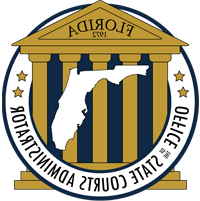Judge Orlando A. Prescott honored with Award for Teaching Excellence
Circuit Judge Orlando A. Prescott was honored earlier this month with the Florida Judicial College Award for Teaching Excellence.
Judge Prescott has been on the bench in Miami-Dade’s 11th Judicial Circuit since 2000, previously serving as a county court judge before he rose to the circuit bench in 2005. He previously worked as an assistant U.S. attorney in the Southern District of Florida, and before that as an assistant state attorney. He now serves as the administrative judge of the unified children’s court in the 11th Circuit.
The Award for Teaching Excellence recognizes Judge Prescott’s meritorious service to the Judicial College during his 16 years as a faculty member and his exceptional skill in judicial education. He is an expert in dependency cases and delinquency proceedings.
Continuing judicial education is required in Florida, by court rule. A variety of education programs for new judges, experienced judges, and some court staff. The Florida Court Education Council (FCEC) was created in 1978 to oversee the development and maintenance of a comprehensive education program for Florida judges.
The session of the Florida Judicial College held in Kissimmee, and where Judge Prescott was recognized, provided continuing education for 48 judicial and quasi-judicial officers. Judges attended mock trials to enhance trial skills on such topics as effective case management of Marchman Act and Baker Act cases, for example, with sessions including lessons about evidence and handling self-represented litigants.
About 900 hours of instruction are offered each year through live presentations and distance learning formats. This education helps judges and staff to enhance their legal knowledge, administrative skills and ethical standards, with the resulting public benefit of competent and fair administration of justice.

